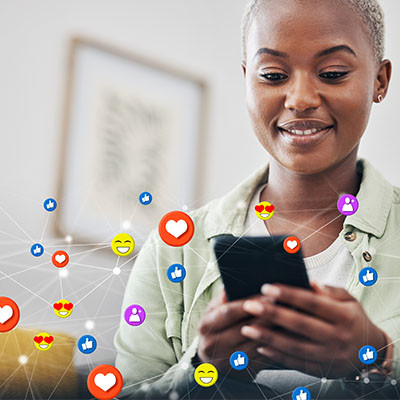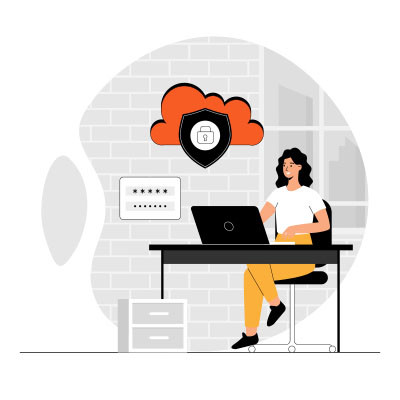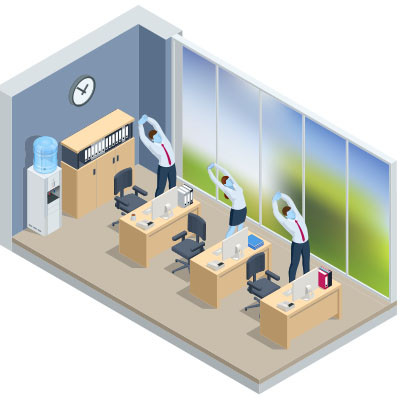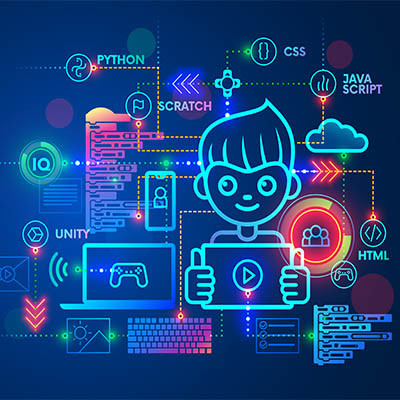Unless you’ve been living off the land in the wilderness for the past couple of decades, you’ve heard of Facebook, Twitter (now X), and Instagram. Most people have some type of social media presence on one or all of these platforms (or at least on LinkedIn, TikTok, or YouTube). Many businesses once used or currently use these platforms as a part of their marketing efforts, and despite being billion-dollar companies, there are some serious concerns about the viability of these platforms going forward. In this week’s blog, we will discuss some of the problems people are having with these established social media platforms and how alternatives might just be the future of social media.
JensenIT Blog
In recent years, there has been much debate about how companies collect, sell, and use personal data. Many businesses make extra money by selling data they collect about people. This might seem like a side effect of all the data we create online, but it can lead to some tricky problems. Today, we'll look at something called the "data-broker loophole," how it works, and what we can do about it.
It isn’t rare for people to subscribe to things and only stay subscribed because the cancellation process is so challenging and inconvenient. However, the Federal Trade Commission is looking to stop this, adopting a rule that eliminates the capability for businesses to put hurdles in front of cancellation processes.
Being a green business is certainly not a bad thing. Not only does it help boost your company's environmental friendliness, but it can often attract customers and clients who prioritize the environment. Less mentioned, however, is how being greener can actually give your business an advantage in the right circumstances.
We have the pleasure of working with many businesses, some of whom take more advantage of our remote services than others. We wanted to take a few moments to discuss one of our more discreet client organizations and a challenge we helped them resolve. Hopefully, sharing this won’t land us on the naughty list.
We tend to focus most of our attention on how to maintain your business’ technology over time. This only makes sense—we are a managed service provider, after all—but that being said, your IT is not the only element that needs to be properly taken care of. It is just as important that you and your team members are physically able to focus on work…something a desk job doesn’t always help.
Technology fatigue is the mental grinding that comes with the overwhelming use of technology in our lives. Many people in the workforce haven’t had to use technology as much as they do today and the ever-growing demand for technology in business creates problems for employees (and therefore businesses). This week, we thought we’d discuss the truth behind technology fatigue and how individuals can do a better job of not getting burnt out from tech.
The thing about technology is that, regardless of how miraculous or otherworldly it may seem upon its introduction, it can quickly become so very familiar to us. Hard as it may seem to believe, someday (maybe even soon), things like ChatGPT and other bleeding-edge technologies will seem typical, perhaps even humdrum.
Have you ever heard of the Uncanny Valley? It’s the theory that explains why the human race tends to prefer humanoid robots, but only up to a point, after which we find them unsettling. It’s one reason why so many people found the 2019 film Cats bothersome to watch. The Uncanny Valley has also been present in film in recent years, especially when actors who have passed are recreated digitally to make an appearance, or when talent needs to look older or younger than they are.
Who are you? While it’s a question that’s been asked in all contexts with all levels of metaphysicality attached—from asking someone their name to prompting someone to follow a path of spiritual self-discovery—the growth of the metaverse once again urges us to ask it in a more literal way. When accessing a conglomeration of various services and platforms, how many identities will each user need to juggle?
If Edgar Allan Poe worked in an office, here’s what one of his works would sound like:
True!—nervous—very, very dreadfully nervous I have been and am, but why will you say that I am mad? The office had sharpened my senses—not destroyed—not dulled them. Above all was my sense of hearing. I heard all things in heaven and on earth and many things in…the other place. So, how then am I mad, especially when I can so healthily and calmly tell you this story?
While we typically focus on how various technologies can be used in business applications as a way to boost a small or medium-sized organization’s capabilities, we occasionally come across a topic that is just undeniably cool (and that we can bring back around to business concerns, to boot). We recently heard about the development of a flexible new wearable that uses AI to monitor the health of the wearer that we wanted to discuss with you.
While remote work has been a relatively new option for many businesses currently using it in their operations, it has already shown considerable benefits. Having said that, it would be incongruous of us if we didn’t also acknowledge one glaring issue that remote work has helped to foster: a sense of disconnect in many of those making use of it.
When you think about the workweek, there’s a good chance that some iteration of the 40-hour week, broken into 9-to-5 shifts on the weekdays is what comes to mind. It’s just the way things are done. However, this may not be a good thing. Let’s consider the origins of our modern work schedule, and how changing it could provide us all with some serious benefits.
If you’re familiar with the combination
Up-Up-Down-Down-Left-Right-Left-Right-B-A-Select-Start, chances are good that you grew up in the 80s. This is because this combination of buttons is the infamous Konami Code, a cheat code that video games (and others, including some websites and software) have continued to reference since it first appeared in 1986.
Let’s examine the Konami Code’s origins, as well as the various ways it has been used since.
HIPAA—the Health Insurance Portability and Accountability Act—is a serious concern for all healthcare providers that operate within the United States, and for good reason! Since August 1996, HIPAA has mandated that these healthcare providers comply with various best practices. While HIPAA is relatively familiar to many people for assorted reasons, fewer know about HITRUST (the Health Information Trust Alliance) and how these acronyms ultimately cooperate with one another.
Accessibility to the Internet is a hot topic because, at this point, almost everyone should be afforded Internet access. The fact that some people don’t have access to the Internet puts them at a severe disadvantage. One group that has major problems with accessibility are disabled people. Let’s discuss what can be done about that.
Remote work is often lauded for its various benefits—and don’t get us wrong, there are certainly plenty of them to account for. However, it must also be said that remote work is far from perfect. Take the environmental impacts it can have, for instance. Let’s discuss how working from home can prove better for the environment, while also addressing the serious problems it has contributed to—and, just maybe, how we can help minimize some of them.




















